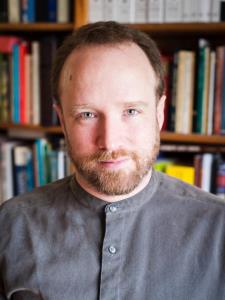
Hien B. answered • 04/24/19
Top Philosophy Tutor w/ Master's degree from Oxford
I'd definitely lean towards saying that you're not morally obligated, whether or not utilitarianism is true. I'm afraid though that a professional (or aspiring professional) philosopher could be a little biased on this, since on the surface it seems that the average philosopher could have chosen a different career that he or she is capable of doing, which would have them produce a greater amount of good in the world. The only exceptions might be the extremely well-known who do "public philosophy", addressing issues (like public policy or applied ethics) that are much more relevant to non-philosophers. I think something similar may be the case for theoretical physicists, mathematicians, and academics in general as well. But I think there are a lot of good reasons to doubt that this means that one ought to pursue one career over another.
I'm certainly not a fan of utilitarianism, but suppose that it is true. It may be true that a doctor produces a greater amount of utility than the average academic, but that to me that doesn't seem to entail that an individual's choice to be a doctor would produce greater utility than the same person's choice to be an academic. Consider a number of cases in which there's either no difference in utility or even greater utility if one were to decide against being a doctor:
- When deciding not to become a doctor doesn't change how many doctors there would be. This could happen in many ways, but one clear example is medical school admissions. If a person would've been accepted by a med school but doesn't apply, then another equally competent applicant is admitted who otherwise wouldn't have been (i.e. the spot would just been taken by someone else)
- A doctor's lack of satisfaction with his/her job results in a lack of competence (or lesser degree of competence). This one's fairly intuitive... people tend to care more or be better at things they like than the things they don't like.
- One's preferences can change with time or with more info/experience. I know many people (including myself) who thought they would find a career in medicine to be at least somewhat enjoyable, but then grew frustrated by the amount of school or perhaps learned something about the occupation that deterred them. If they were to continue to pursue medicine, it could be likely that they would either just drop out later or just be less competent.
There's probably other cases you could think of, but I think these just show that we should be skeptical that for any individual, becoming a doctor would produce greater utility than becoming an academic or something else. Additionally, this may not be a part of orthodox utilitarianism, but I think that any reasonable account of moral responsibility ought to meet some sort of foreseeability condition. What I mean by that is that the utilitarian should reasonably be able to foresee that doing X will produce greater utility than doing Y, in order for him or her to be obligated to do X.
So really it's morally permissible for you to choose any of those career paths. Or at least that there isn't any one career path that you are morally obligated to choose. Though I'm certainly biased based on my chosen career path, I hope my insight is valuable not only as a philosopher but also as someone who had a similar experience. I too came out of high school thinking about a career in medicine but changed to a philosophy major after I took an intro to philosophy class and just fell in love with it. It honestly was one of the best decisions I've ever made in my life, even if I don't end up being an academic (academia is an extremely competitive, which is be something you might want to consider).
Feel free to message me if you'd like more input!




